Hug Me! I’m Organic!
- By: Hallee
- On:
- 16 Comments
 Legally, What does Organic Mean?
Legally, What does Organic Mean?
Organic food must be grown and manufactured based on standards laid out by a country’s regulatory program or agency. For the United States, these standards are defined by the National Organic Program (NOP) and enforced by the United States Department of Agriculture (USDA).
When you see the organic label on a product, it must be at least 95% organically produced ingredients (excluding water and salt). These products must also be manufactured using only approved methods and must not use sewage sludge or ionizing radiation in production. You can read more on organic labeling on the USDA website.
 In the case of animal products, organic additionally means the animal received no antibiotics or hormones and was fed organic feed containing no animal by-products. The animal should also have had “access” to the outdoors. Although, “access” is not well-defined, so it’s not clear what this provision means, exactly. In the case of produce, the grown food must not be contaminated with synthetic chemicals used as pesticides.
In the case of animal products, organic additionally means the animal received no antibiotics or hormones and was fed organic feed containing no animal by-products. The animal should also have had “access” to the outdoors. Although, “access” is not well-defined, so it’s not clear what this provision means, exactly. In the case of produce, the grown food must not be contaminated with synthetic chemicals used as pesticides.
With extra regulation for organic food, comes extra cost. Consumers foot this bill and pay anywhere from 20-100% more for organic products. Is it worth it?
Follow the Money
According to the Organic Trade Association, Amercians spent $16 billion on organic foods last year and another $744 million on organic “non-food products” such as vitamins, clothing, cleaners and pet food. Sales of organic products have grown by 15 percent to 21 percent each year since 1997, and 57 percent of Amercians buy organic at least part of the time.
I have to admit, I have met crusaders who purchase strictly Organic products. It seems the “Hug Me! I’m Organic!” shirts were made exclusively for them.
It used to be industry strove for the Weight-Watchers emblem, the Atkins emblem, the South Beach Diet emblem. They aimed for such packaged proclamations as MSG free, gluten free, ZERO Trans-fats, or “Made with WHOLE GRAIN!” If consumers could rationalize the purchase of junk food and snack food and — let’s be real — unhealthy food based on these words on the label, manufacturers could pocket the profits. For marketers, it seems, the “Organic” emblem is the new snake-oil.
The Cultural Perception
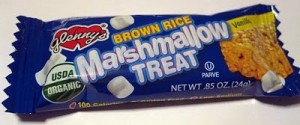 Dr. Amy Tuteur, M.D, received her undergraduate degree from Harvard College and her medical degree from Boston University School of Medicine. She is a former clinical instructor at Harvard Medical School. In a recent article, Dr. Tuteur took the rather unpopular stand that organic food is worth less than non-organic food.
Dr. Amy Tuteur, M.D, received her undergraduate degree from Harvard College and her medical degree from Boston University School of Medicine. She is a former clinical instructor at Harvard Medical School. In a recent article, Dr. Tuteur took the rather unpopular stand that organic food is worth less than non-organic food.
It’s the holy grail of contemporary marketing: getting consumers to pay more for something that is worth less. When it comes to organic food, marketers have hit the jackpot.How have consumers been enticed to pay more for products that are potentially less safe than their conventional counterparts? The organic food scam depends on tapping into cultural myths about nature, playing upon widespread misunderstanding of risk, and flattering consumers into believing that those who choose organic food are “empowered.”.Dr. Amy Tuteur, M.D
This got me thinking. How popular is going “Organic” these days and what makes us choose Organic over non-Organic?
The “Organic” Brandwagon
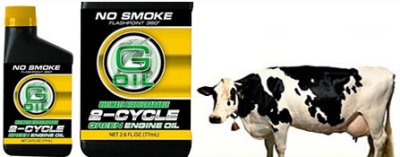 We have already seen the introduction of Organic motor oil this year.
We have already seen the introduction of Organic motor oil this year.
Yes. I said Organic motor oil.
In fact, a whole host of “organic” products are slated to hit the shelves before the year ends, like Organic 2X soy underwear. As harmful as processed soy is to men, I find that the introduction of soy underwear just opens itself up to way too many obvious jokes.
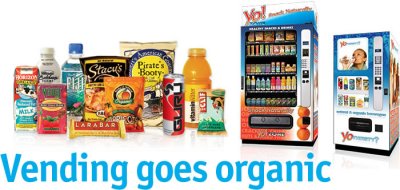 Yo! foods launched vending services including vending machines nationwide to dole out such “Organic” snacks as candy bars, chips, “energy drinks,” and gummi worms.
Yo! foods launched vending services including vending machines nationwide to dole out such “Organic” snacks as candy bars, chips, “energy drinks,” and gummi worms.
And while we may not be able to live without candy bars, who can live without Organic De-icer, Organic Bouquet’s $250-per-dozen “extreme roses” and the Electrolux Organic Cooker– a tabletop appliance that uses radiant energy and some sort of vacuum device to cook food oil-free. Well, at least it contains a vacuum, in keeping with the old Electrolux tradition. We are probably going to stick with a more primitive method of cooking in our household– something like fire or a hot stove, perhaps.
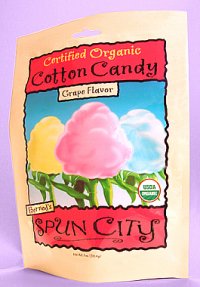 Organic Marketing
Organic Marketing
If you are going for natural, organic, and sustainable, what could be better than an aerosol can full of organic pancake batter? Since you aren’t going to drink your motor oil, or pour up a cup for your kids, is there really a difference between cow fat that has been industrially and chemically put through some pretty extreme processes and a good synthetic alternative? How “Organic” is an Electrolux oven made of, among other things, PCVs and ABS plastic?
What’s the point of marketing something as patently unhealthy as toaster pastries with the “Organic” label? What’s the difference between “Organic” and non-Organic toaster pastries, anyway? Although certain purists may suggest that the “Organic” variety of toaster pastries are more “wholesome,” the bottom line is that a toaster pastry is a toaster pastry — is a toaster pastry — and it’s definitely not something that you or your children should be eating to kick-start your day. Not when things like eggs and oatmeal remain abundantly available.
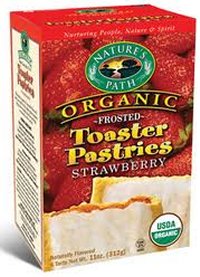 Is the “Organic” brand really better or is it all just marketing? In a direct comparison between the “healthy” Organic pastries made by Nature’s Path and evil non-Organic Kellogg’s Pop-Tarts (which everyone knows good “responsible” parents don’t serve to their kids), the pastries were about the same in terms of calories and fat (210 vs. 205 calories and 3.5 grams vs. 4.5 grams of fat) but the Kellogg brand actually had fewer carbohydrates (37.5 grams vs. 40 grams) and less sugar (17.5 grams vs. 19 grams). In this case, anyway, it appears Dr. Tuteur has a point.
Is the “Organic” brand really better or is it all just marketing? In a direct comparison between the “healthy” Organic pastries made by Nature’s Path and evil non-Organic Kellogg’s Pop-Tarts (which everyone knows good “responsible” parents don’t serve to their kids), the pastries were about the same in terms of calories and fat (210 vs. 205 calories and 3.5 grams vs. 4.5 grams of fat) but the Kellogg brand actually had fewer carbohydrates (37.5 grams vs. 40 grams) and less sugar (17.5 grams vs. 19 grams). In this case, anyway, it appears Dr. Tuteur has a point.
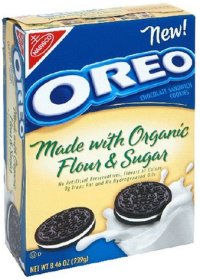 Organically Processed
Organically Processed
I’ll cut to the chase. It’s pointless to discuss the fortitude of processed “Organic” foods. Processed foods — ANY processed foods — are nearly always detrimental to your health. Slapping an organic label on them doesn’t change anything but the price.
How much processing goes into gummi bears, lollipops, and macaroni and cheese?
And I’m sorry, but Organic Coke? Really? No, wait. Really? “Organic” Coca-Cola? I wonder how much processed “Organic” sugar went into that?
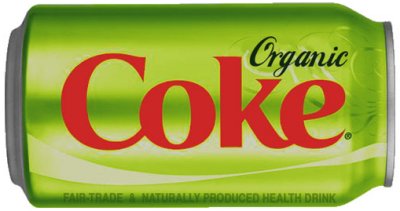
Worshiping the Organic gods
Buying 100% Organic can be pretty expensive. Clever marketers count on that up-charge to increase their profit margin.
Ever hear someone say, “We only purchase Organic. We are religious about it!”
One of the three Biblical principles we follow in our diet is, “Avoid food addictions. Don’t let any food or drink become your god.” Devoting too much energy or too much of our finances to purchase exclusively this or that kind of food is also a danger, especially if we place more financial importance on that practice than on, for instance, offering a tithe (1 Corinthians 10:31).
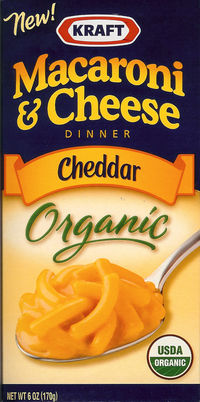 When we sacrifice what is rightfully our Father’s on the alter of our personal desires for our diet, we are making our diet into an idol.
When we sacrifice what is rightfully our Father’s on the alter of our personal desires for our diet, we are making our diet into an idol.
Get Real Organic
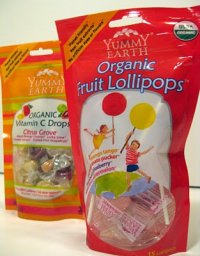 Let’s get real. “Organic” farming may be better for the environment (although, of course, “Organic” does not necessarily equate to “sustainable”), but the reality is that pesticide residues in foods like Oreos are a marketing ploy at best, when it comes to assessing whether or not such foods should even be included in your diet. Organic white flour and refined sugar are just as bad for your long term health, and waistline, as the non-Organic variety. It’s still low in fiber and nutrients…it will still elevate your insulin just as effectively. That is the real problem with junk foods like Oreos and, pastries, and cotton candy.
Let’s get real. “Organic” farming may be better for the environment (although, of course, “Organic” does not necessarily equate to “sustainable”), but the reality is that pesticide residues in foods like Oreos are a marketing ploy at best, when it comes to assessing whether or not such foods should even be included in your diet. Organic white flour and refined sugar are just as bad for your long term health, and waistline, as the non-Organic variety. It’s still low in fiber and nutrients…it will still elevate your insulin just as effectively. That is the real problem with junk foods like Oreos and, pastries, and cotton candy.
In these cases “organic” is simply a marketing tool – and you’re not doing yourself any favors, whether it’s coming from a Community Wealth Enterprise like “Newman’s Own” or an agribusiness conglomerate like Nabisco.
Is There a Real Difference?
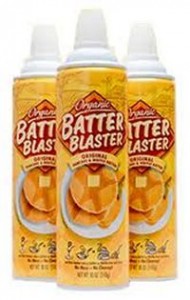 Is there any difference? The short answer is, “Yes” but one has to apply common sense. The Environmental Working Group (EWG) performed more than 43,000 tests for pesticides on various types of produce in thousands of samplings. Their computer analysis revealed that consumers could reduce their exposure to pesticides by almost 90 percent by avoiding just the most contaminated fruits and vegetables. They came up with a list of the most pesticide-laden produce varieties.
Is there any difference? The short answer is, “Yes” but one has to apply common sense. The Environmental Working Group (EWG) performed more than 43,000 tests for pesticides on various types of produce in thousands of samplings. Their computer analysis revealed that consumers could reduce their exposure to pesticides by almost 90 percent by avoiding just the most contaminated fruits and vegetables. They came up with a list of the most pesticide-laden produce varieties.
- Peaches
- Apples
- Sweet Bell Peppers
- Celery
- Nectarines
- Strawberries
- Cherries
- Lettuce
- Grapes (imported)
- Pears
- Spinach
- Potatoes
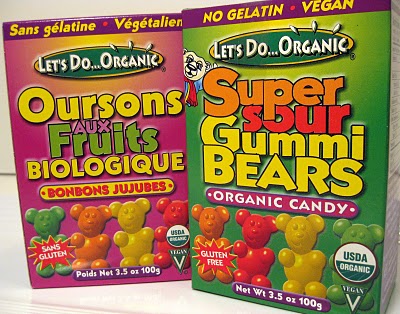 I’ll be totally honest. We buy Organic produce of these varieties as often as possible, or we grow our own. If the price point is greater than about 10%, though, we forgo organic and carefully wash and prepare our non-organic purchase. There are other produce types for which it is fairly unnecessary to pay more for organic. These foods regularly test clean of pesticides and either have a hard outer skin or don’t retain pesticides well, if at all.
I’ll be totally honest. We buy Organic produce of these varieties as often as possible, or we grow our own. If the price point is greater than about 10%, though, we forgo organic and carefully wash and prepare our non-organic purchase. There are other produce types for which it is fairly unnecessary to pay more for organic. These foods regularly test clean of pesticides and either have a hard outer skin or don’t retain pesticides well, if at all.
- Onions
- Avocado
- Sweet Corn – frozen
- Pineapple
- Mango
- Sweet Peas – frozen
- Asparagus
- Kiwi
- Bananas
- Cabbage
- Broccoli
- Eggplant
In other words, it may pay in health benefits to buy Organic peaches, but you get almost no benefit from paying extra for Organic bananas. And, seriously, what kind of “health” benefit are you reaping by eating cotton candy, whether it’s made from Organic processed sugar or non-Organic processed sugar?
We Recommend Organic Because…
In the case of things like Root Beer, Organic choices contain no High Fructose Corn Syrup. But we are still cognizant of the fact that we are drinking ROOT BEER. In the case of Newman’s Own Newman O’s — we are cognizant of the fact that these are COOKIES.
Comments are closed.


the organic pancake batter in the can…cracks me up! oy vey…
its interesting though b/c i was in our “organic/natural” foods store one day and picked up a bottle of either marinade or bbq sauce and it still had hfcs in it! so i do make sure I still read the labels there too!
AMEN! AMEN! AMEN! I’ve been on an “anti-organic fad” mission for over a year and it’s nice to see somebody that understands that (for the most part) “organic” is a marketing tool! Yes, pesticides are icky things, but “organic” is not the same as “healthy.” It’s back to the principle of knowing what’s really in your food. It’s also important to keep in mind that organic produce needs to be free of SYNTHETIC pesticides. “Natural” pesticides are free game, keeping in mind that rattlesankes, hemlock and arsenic are also natural. Hmmm…
As far as the “dirty dozen” fruits and veggies go, a lot of our local farmers do not use pesticides (other than lady bugs lol), but don’t want to go through the red tape (and extra expense) of getting that “certified organic” label. Knowing your growers’ practices and/or growing your own fruits and veggies is the best way to keep your family safe.
I couldn’t agree more about organic/ real food becoming an idol. Recently, I read an article on PssionateHomemaking regarding this same subject. http://www.passionatehomemaking.com/2010/01/can-natural-living-become-an-idol.html
Hallee, this hit the nail on the head and has been a pet peeve of mine for a while. That said, I do sometimes buy this junk, but rarely, and only when I’m planning to buy junk anyway. This is just junk without the REALLY junky junk!
Was that an annoying comment to read?
Sorry!
Great post Hallee!! Interesting about bananas—I am going to stop buying organic because they are expensive! Makes sense that there is no benefit. But we do buy organic produce when we can (and meats). And as a pregnant lady, I’ve had toaster pastries lately. But I don’t kid myself–I buy the generic because it’s cheaper and I eat when the kids aren’t around so they don’t get any ideas. We probably eat more processed food when we should but we’re realistic about it and don’t pat ourselves on the back when it’s “organic” mac and cheese vs. regular.
BRAVO! GREAT article, Hallee! It appears as that with other many things, people are leaving their common sense behind. You can see a lot of that with labeling where products are labeling themselves “free” of ingredients they would never contain in the first place. Thank you for this! I needed a good laugh today! I also love that in your wonderful, organized way you present the facts, THEN the abuses.
Thanks for sharing Hallee. I think for me the bottom line is, to get back to basics, grow my own food, make and bake from scratch, to sustain our family and friends, buy local, that way we don’t have to concern ourselves by looking at box ingredients organic or not. how simple is that. And yes I agree, we don’t want to fall in the idolizing pit, even self sustaining can become a wrong focus if that is our main goal in life. May we all continue to be blessed with God’s knowledge and wisdom and continue to focus on His Word. Thank you again!
Blessings ~ Carmen
My dad one time said he knew that the world was going to the pits when he saw “Fat Free” on a package of Tic Tacs. HA!
Beautiful comment, Carmen. Thank you.
I went to the grocery store yesterday and saw “all natural” fat free half and half. There’s just something not quite right about that. lol
Welcome to Capitalism at its best. You can only sell what people will buy and organic is in. I seriously guffawed at many of those “organic” products. Rice krispie bars? Pancakes in a can? Seriously? Processed is processed no matter how you look at it.
I rarely buy organic because frankly, we just can’t afford it. I am all about buying local and growing your own though and become increasingly aware of what is exactly on the ingredient list of the things we purchase from the grocery store. It has been a slow process, but I’m learning.
Thanks for posting this. It was a very interesting read.
Hallee,
This was a great post! Like Kelly above, when I do buy things like this it is rarely. We mainly eat “whole” foods, but because I am a busy mom of 4 young ones under the age of 12 and homeschool, too, I have some quick options on hand when we are on the go. And like you mentioned it is because the organic versions typically have no high fructose corn syrup or partially hydroginated ingredients in them. These are two BIG health busters that are in processed foods. Thank you for your attention to this crazy organic processed food bandwagon!
Sue E.
Hi, I just wanted to comment on the issue of certain conventionally grown produce being less harmful to us than others. Bananas are often used as an example of a product that isn’t important to buy organic. What we are not taking into consideration is that while the pesticide residue may not end up in our bodies in very large quantities, the growing practices are harming people halfway across the world from us. This is taken from an article in my local newspaper, a Q&A about banana growing:
“Banana plantations were infamous for their environmental and social abuses, which included the use of dangerous pesticides, poor working conditions, water pollution and deforestation,” reports the Rainforest Alliance, a New York-based nonprofit that has been working to improve worker and environmental conditions in the industry since 1990. “Pesticide-impregnated plastic bags, which protect bananas as they grow, often littered riverbanks and beaches near banana farms, while agrochemical runoff and erosion killed fish, clogged rivers and choked coral reefs.” Also, the proximity of housing to banana fields, coupled with lax regulations for pesticide handling, led to frequent illness among workers and people living near the plantations.
The article goes on to say that the Rainforest Alliance is working to get these practices changed but they are still a huge problem. Do you honestly want to support an industry that harms the world and fellow humans this much? It’s a little selfish to only worry about how much toxin ends up in our families bodies without consideration for the rest of the world. I say, if you can’t afford the organic than just don’t buy it. Bananas are mostly sugar and we can live with out them. Why should we buy something grown halfway around the world when we can get fruits and vegetables from our own neighborhoods? We as Americans need to shift our thinking from expecting that we can have whatever we want, when we want, and learn how to eat more simply and sustainably. We grow so many other fruits here.
I don’t mean to sound preachy or nasty at all, it’s just something I feel very passionately about and it upsets me to hear people saying they will stop buying organic bananas now, because it doesn’t really matter. It does matter!!
What about buying organic in order to avoid GMOs? I keep organic mac & cheese in the pantry for those nights when we are completely exhausted and are tempted to eat out. I figure it’s still healthier than fast food, not to mention cheaper. Thanks for keeping us honest (or at least attempting to).
I have hated this for awhile too. I buy organic produce as much as possible, and I buy local, sustainable meat, eggs, and milk. But it’s not ORGANIC in most cases. I know the source and the food is mainly unprocessed (but, you know, someone else did slaughter and cut the meat for me :) ). But organic junk food? Occasionally I will buy it in a pinch, because it doesn’t contain HFCS or corn oil, but I don’t kid myself into thinking that’s healthy! That’s where people get the idea that the organic lifestyle is so expensive — buying that crap! Sigh.
Buying organic processed foods like candy is dumb if you think that it makes it healthy. However, my child is allergic to several food dyes. At least the organic companies give us an option which is so appreciated at Halloween,etc. Yes she could live without candy and did for years, but I love that she can have little now. But I realize that is just candy and not health food.
Thank you for this post, Hallee. Some of it made me laugh. Organic oil for a car? Really? And organic Coke really made me crack up. This said by someone (okay, me) who, when giving in to the temptation of soda now and again, goes for the Pepsi Throwback. It’s just as bad for me, but my justification is at least it doesn’t have hfcs in it. I don’t buy it often, but still…
The main thing I think is common sense when buying anything. We are trying to cut out a lot of processed foods but there are some things that end up in my cart now and again and while corn chips still have to specifically be Fritos brand (once in a blue moon), corn anything from corn itself to products made from it I refuse to buy unless it’s organic or can otherwise prove that it’s non GMO. I guess we all just have to figure out what we are comfortable with for our families and continue learning about the world around us and the food we eat. :)